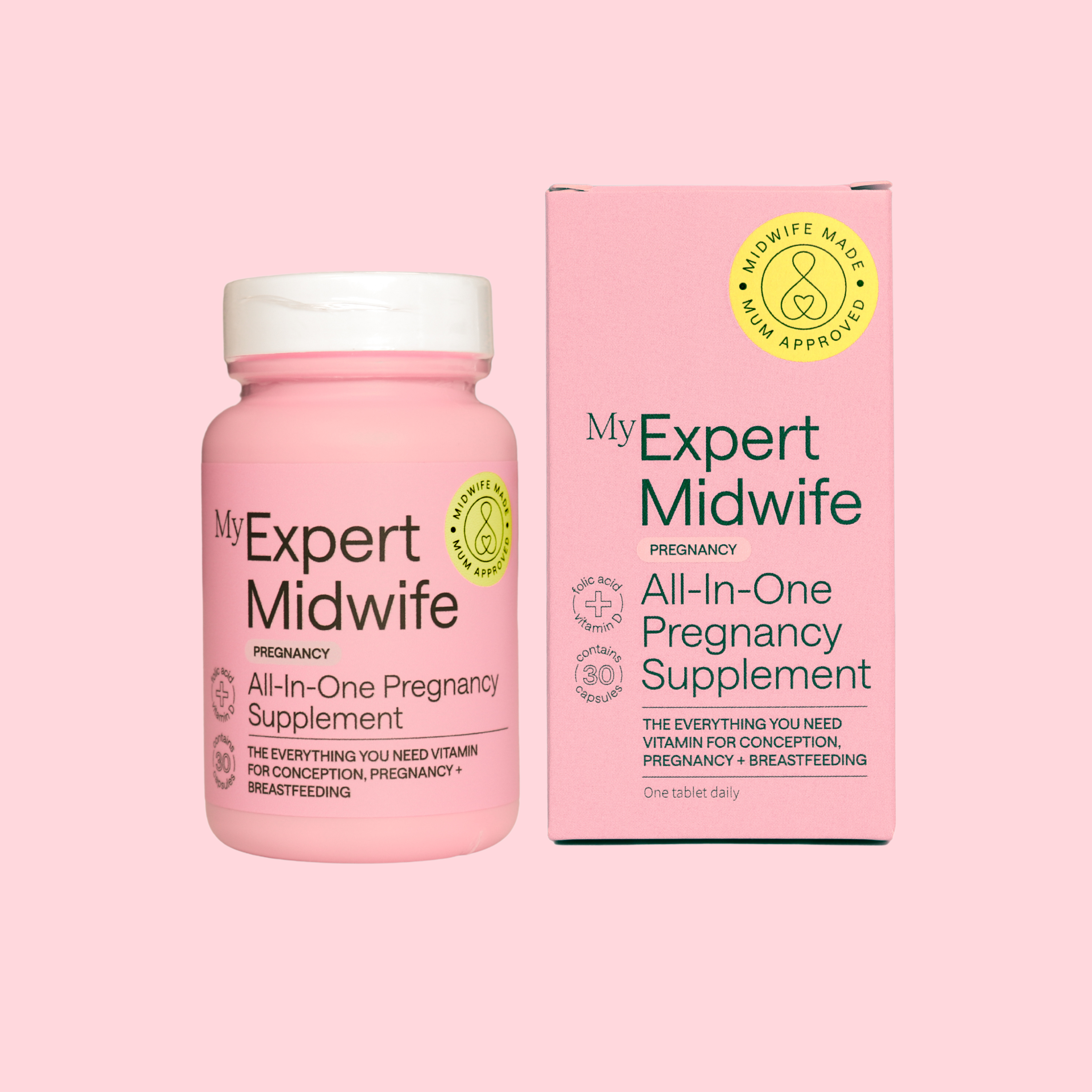Reading about nutrition during pregnancy can sometimes feel overwhelming; what you should and should not take, and what is important and what is not. This can be particularly true when advice seems conflicting or it changes. However, there is one area where there is pretty much universal agreement: the importance of taking a folic acid supplement during pregnancy.
Why is folic acid important in pregnancy?
Folic acid is crucial for your overall health and particularly important when it comes to having babies. This is because it significantly improves fertility and plays a vital role in supporting the healthy development of your baby’s brain, spine and neural tube in the early weeks of pregnancy.
Taking a folic acid supplement before and during pregnancy can significantly reduce the chances of the unborn baby’s neural tube – which forms during the first 12 weeks of pregnancy - not developing optimally (which could lead to malformations such as spina bifida).
The body doesn’t store folate particularly well, meaning folate deficiency is common. As half of all pregnancies are unplanned, taking a folic acid or folate supplement daily throughout your childbearing years - from adolescence to menopause - ensures that you have sufficient folate to meet the body’s needs if and when pregnancy occurs.
However, fear not if you are one of the many women who discover they are pregnant and have not been taking any supplementation!
If you start as soon as you are pregnant and continue to take it, you can still reap many benefits, such as:
- Significantly reducing the risk of your baby’s neural tube not developing optimally
- Helping your reproductive cell health, which can aid fertility
- Helping your baby grow and develop a healthy nervous system
What is the difference between folic acid and folate?
Folate and folic are terms that are often used interchangeably. However, there are significant differences to bear in mind:
- Folate, in the form of L-Methylfolate, is found naturally in food
- Folic acid is a synthetic form of folate found in most supplements, plus some fortified foods
Folate is part of the essential B group of vitamins – vitamin B9, to be precise. It is vital as it makes our DNA and other genetic components, and it helps maintain overall health. It helps the body with cell division and, in pregnancy, it is vital for your baby to grow a healthy nervous system (including the brain, stem and spinal cord).
When should I start taking folic acid?
If you are planning for a baby, a good rule of thumb is to take a pre-conception and pregnancy supplement about 3 months before trying to conceive, as folate or folic acid can also help you get pregnant.
It is very important to take folic acid during the first 12 weeks of pregnancy, as this is when your baby’s spine, brain and neural tube develop. After this, it is advisable to continue daily supplementation, as folate contributes towards healthy maternal tissue growth throughout pregnancy.
We have created a free and downloadable Your Guide to Trying to Conceive to support you in your journey to becoming pregnant.
How much folic acid should I take during pregnancy?
The Department of Health recommends a daily supplement containing 400mcg of folic acid. This recommended daily allowance (RDA) meets the needs of your growing baby and those of your own health and wellbeing from preconception, throughout pregnancy and into your postnatal period.
Getting into the habit of taking your folate/folic acid supplement daily is easier if you try and take it at the same time every day. A good aide-memoire is to have your supplements by the kettle, if you prefer to take them in the morning, or on your bedside table if you rather take them at night.
Some women may require a higher dose of folic acid during pregnancy. Your midwife or GP may prescribe this after taking your medical and family history.
You may need a higher dose of folic acid if you:
- Have a history of malabsorption
- Have diabetes
- Are considered to be obese
- Have had a previous baby with neural tube defects
- Take certain medication
Talk to your health care provider if you have any questions or concerns.
What are good sources of folic acid or folate?
Folic acid is a man-made compound and is not found naturally in foods. However, certain foods such as dairy products, cereals and flour are fortified with folic acid in some countries. In the UK, foods fortified with folic acid will state so clearly on the label.
Folate occurs naturally in foods. The word comes from the Latin word for leaf, ‘folium’.
Good sources of natural folate include:
- Dark green leafy vegetables (like broccoli, brussel sprouts and kale)
- Edamame beans
- Asparagus
- Avocadoes
- Citrus fruits
- Peanuts
- Legumes (such as lentils and kidney beans)

During pregnancy, your need for folic acid increases so much that it is impossible to get enough from diet alone. So, we recommend all women of childbearing age take a folic acid supplement.
Lay The Groundwork For A Healthier Pregnancy Today With Our Folic Acid Supplement
At My Expert Midwife, we have developed a perfectly balanced nutritional supplement that contains the recommended daily allowance of folic acid alongside a host of other essential vitamins and minerals for pregnancy and pre-conception. As with all supplements, this should be taken alongside a well-balanced diet.
You can lay the groundwork for a healthier pregnancy by taking a supplement specifically developed for your and your baby’s needs, from pre-conception through to the post-birth period. Find out more about our supplements here and about the additional nutritional needs in pregnancy.




















